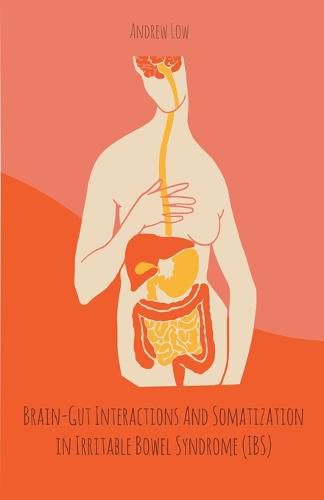Readings Newsletter
Become a Readings Member to make your shopping experience even easier.
Sign in or sign up for free!
You’re not far away from qualifying for FREE standard shipping within Australia
You’ve qualified for FREE standard shipping within Australia
The cart is loading…






This title is printed to order. This book may have been self-published. If so, we cannot guarantee the quality of the content. In the main most books will have gone through the editing process however some may not. We therefore suggest that you be aware of this before ordering this book. If in doubt check either the author or publisher’s details as we are unable to accept any returns unless they are faulty. Please contact us if you have any questions.
Irritable bowel syndrome (IBS) is a common disorder of gut-brain interaction defined by recurrent and longstanding abdominal pain and disturbed bowel habits. This book aims to deepen the knowledge about aberrant visceral sensory processing seen in a large group of patients with IBS, focusing on central mechanisms.
Anxiety, depression, and somatization are all associated with increased pain intensity ratings in hypersensitive IBS patients. Non-painful intensity ratings are influenced only by fear and to the same extent in regular- and hypersensitive IBS patients. Somatization is further associated with several measurements of rectal pain sensitivity and mediated the effects of depression and GI-specific anxiety on rectal pain perception. Sex, age, and sexual abuse in adulthood are also associated with rectal pain sensitivity.
The level of somatization in IBS is related to differences in local gray matter network connectivity, mainly in regions of the prefrontal cortex, insula, and cerebellum.
In conclusion, somatization, measured as multiple somatic symptoms, is essential for visceral (hyper-) sensitivity in IBS and is associated with altered structural connectivity within the brain.
$9.00 standard shipping within Australia
FREE standard shipping within Australia for orders over $100.00
Express & International shipping calculated at checkout
This title is printed to order. This book may have been self-published. If so, we cannot guarantee the quality of the content. In the main most books will have gone through the editing process however some may not. We therefore suggest that you be aware of this before ordering this book. If in doubt check either the author or publisher’s details as we are unable to accept any returns unless they are faulty. Please contact us if you have any questions.
Irritable bowel syndrome (IBS) is a common disorder of gut-brain interaction defined by recurrent and longstanding abdominal pain and disturbed bowel habits. This book aims to deepen the knowledge about aberrant visceral sensory processing seen in a large group of patients with IBS, focusing on central mechanisms.
Anxiety, depression, and somatization are all associated with increased pain intensity ratings in hypersensitive IBS patients. Non-painful intensity ratings are influenced only by fear and to the same extent in regular- and hypersensitive IBS patients. Somatization is further associated with several measurements of rectal pain sensitivity and mediated the effects of depression and GI-specific anxiety on rectal pain perception. Sex, age, and sexual abuse in adulthood are also associated with rectal pain sensitivity.
The level of somatization in IBS is related to differences in local gray matter network connectivity, mainly in regions of the prefrontal cortex, insula, and cerebellum.
In conclusion, somatization, measured as multiple somatic symptoms, is essential for visceral (hyper-) sensitivity in IBS and is associated with altered structural connectivity within the brain.